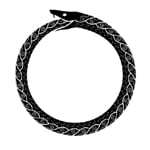 Zimbabwe officially retired the Zimbabwe dollar last Saturday. This marked the end of a devastating monetary experiment that shattered the country and pushed all accrued wealth beyond its borders. The country will be picking up the pieces of what little remains for several generations or more.
Zimbabwe officially retired the Zimbabwe dollar last Saturday. This marked the end of a devastating monetary experiment that shattered the country and pushed all accrued wealth beyond its borders. The country will be picking up the pieces of what little remains for several generations or more.
If you recall, the Zimbabwe government confiscated private farms from white landowners in the late 1990s. From what we gather, the stated purpose of this was to correct the ‘injustices of colonialism’. How this exactly would achieve these objectives is unclear.
But it had the effect of supplanting productive farmers with inexperienced farmers who didn’t know how to make the land work its magic. First, food production fell by 45 percent. Then the banking sector collapsed, and farmers were unable to obtain loans to support their failing farms.
By 2007 the unemployment rate had spiked to 80 percent. Thus the Zimbabwe central bank resorted to the printing press…emitting a seemingly endless supply of paper currency. In turn, Zimbabwe President Robert Mugabe spent the money to somehow, do something, to make things better.
Predictably, these policies of mass money debasement unleashed mass gnashing of teeth. The currency inflated and then hyperinflated. Rather than fixing the problems of poverty and food shortages that Mugabe hoped his policies would achieve…the inflation compounded them. By November 2008, price inflation in Zimbabwe was clocked at an estimated 79.6 billion percent.
Exceptional Incompetence
On paper, the country’s citizens became quadrillionaires. In reality, they became paupers. So, too, the population was subjected to government instability, civil unrest, and a loss of confidence in the government’s ability to act with fiscal restraint.
In practice, Zimbabwe dollars were superseded by U.S. dollars and other currencies in 2009. But on Saturday, the government officially demonetized the Zimbabwe dollar. The currency was closed out by the government at an exchange ratio to U.S. dollars of 35 quadrillion to one.
No doubt, this episode took a strong hand and determined leadership to bring about. It also took bold and extreme action. Doing nothing would have been much less destructive to the country and its wealth.
“It takes truly exceptional incompetence to create hyperinflation,” noted Edward Hadas for Reuters. “To get there, Mugabe and his central bankers had to mess up government finances, economic policy and foreign relations. They had to keep going when the failure of their policies was painfully obvious. And they had to have no effective political opposition to restrain them.
“In most corners of the world, deflation is currently a far bigger concern than inflation, let alone hyperinflation. The typical central banker has to worry about having too little power to influence wages and prices, not too much. Governments do have the capacity to create Zimbabwe-style hyperinflation through deficit spending, but that requires far more excess than any halfway decent political system will allow.”
Going Boldly from Decent to Indecent
The lessons of hyperinflation in Zimbabwe and Hadas’ insights offer important instruction. Certainly, a Zimbabwe-style hyperinflation takes sustained deficit spending and government stupidity. Perhaps, as Hadas asserts, a halfway decent political system will not allow things to get this far out of hand.
In normal times, when things are bumping along relatively smoothly, this is most likely the case. But what about in times of crisis? Political systems can quickly move from decent to indecent.
During times of crisis all bets are off. Government officials will do the expedient. They’ll run massive deficits. They’ll inflate the currency. They’ll confiscate property. Moreover, they’ll provoke wars abroad.
“The country is … standing on the edge of a cliff which threatens to irreversibly take us downhill if we do not boldly move forward with speed to address most of our shortcomings,” said Zimbabwe Reserve Bank Governor Gideon Gono, as he was propelling the price of a can of Diet Coke to 56 million Zimbabwe dollars.
Bold action by central bankers nearly always leads to bold currency destruction. Remember this over the coming months. When the stock and bond market cracks, and banks slip underwater, Fed Chair Janet Yellen will be called on to ‘do something.’ But that something could be much worse than nothing. Particularly if it involves some newfangled and bold approach to debasing the currency.
The Federal Reserve is already in the midst of the greatest monetary experiment in world history. This week we may discover when the Fed will finally start reeling back the credit line that’s been fully extended for over six years. Nonetheless, don’t take Yellen’s remarks too seriously…when the next crisis hits she’ll do just about anything to keep the existing political order.
Maybe we won’t go Zimbabwe. But it’s likely we’ll go to a place less favorable than we’ve known.
Sincerely,
MN Gordon
for Economic Prism
Return from Going Boldly from Decent to Indecent to Economic Prism




